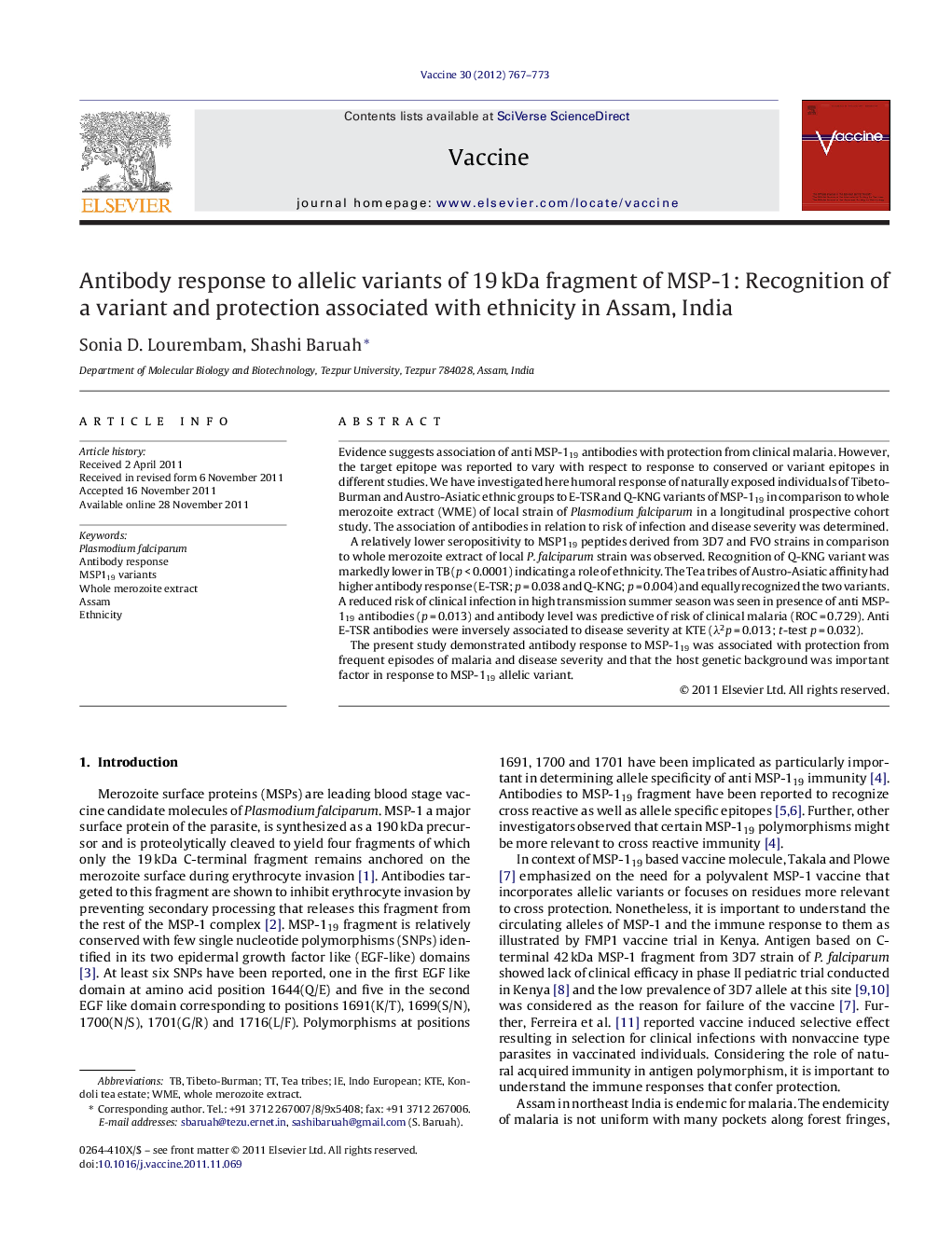| کد مقاله | کد نشریه | سال انتشار | مقاله انگلیسی | نسخه تمام متن |
|---|---|---|---|---|
| 2402780 | 1102851 | 2012 | 7 صفحه PDF | دانلود رایگان |

Evidence suggests association of anti MSP-119 antibodies with protection from clinical malaria. However, the target epitope was reported to vary with respect to response to conserved or variant epitopes in different studies. We have investigated here humoral response of naturally exposed individuals of Tibeto-Burman and Austro-Asiatic ethnic groups to E-TSR and Q-KNG variants of MSP-119 in comparison to whole merozoite extract (WME) of local strain of Plasmodium falciparum in a longitudinal prospective cohort study. The association of antibodies in relation to risk of infection and disease severity was determined.A relatively lower seropositivity to MSP119 peptides derived from 3D7 and FVO strains in comparison to whole merozoite extract of local P. falciparum strain was observed. Recognition of Q-KNG variant was markedly lower in TB (p < 0.0001) indicating a role of ethnicity. The Tea tribes of Austro-Asiatic affinity had higher antibody response (E-TSR; p = 0.038 and Q-KNG; p = 0.004) and equally recognized the two variants. A reduced risk of clinical infection in high transmission summer season was seen in presence of anti MSP-119 antibodies (p = 0.013) and antibody level was predictive of risk of clinical malaria (ROC = 0.729). Anti E-TSR antibodies were inversely associated to disease severity at KTE (λ2p = 0.013; t-test p = 0.032).The present study demonstrated antibody response to MSP-119 was associated with protection from frequent episodes of malaria and disease severity and that the host genetic background was important factor in response to MSP-119 allelic variant.
► The antibody response was predominantly allele specific.
► The antibody response could be correlated with protection from risk of infection and disease severity.
► A distinct difference was seen between the sites with anti MSP-119 antibodies associated with protection at KTE.
► The ethnic background of the individual was strongly correlated to recognition of MSP-119 variants and to immune response.
► Tea tribes of the Austro-Asiatic affinity had a better immune response than the Tibeto-Burmans.
Journal: Vaccine - Volume 30, Issue 4, 17 January 2012, Pages 767–773